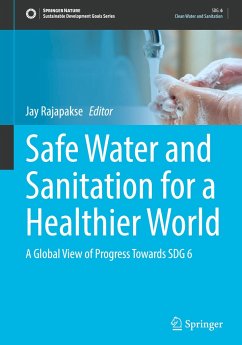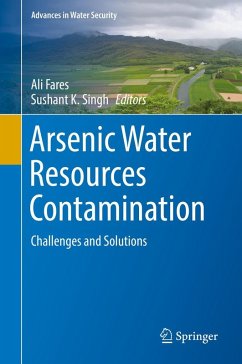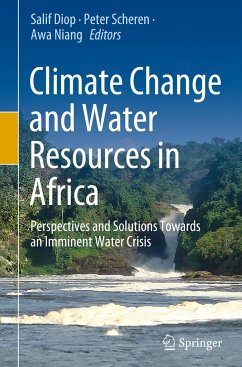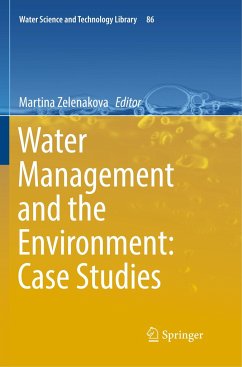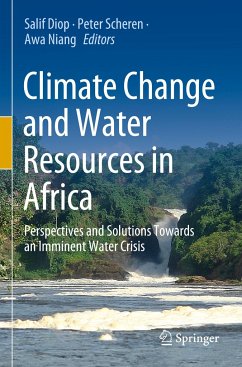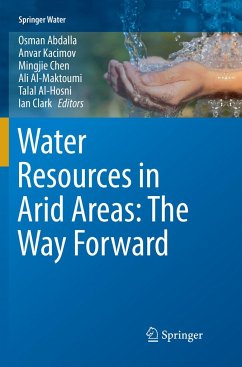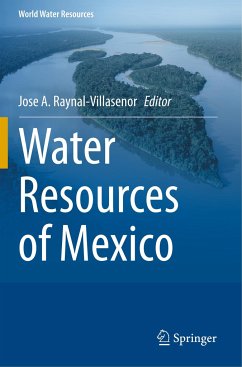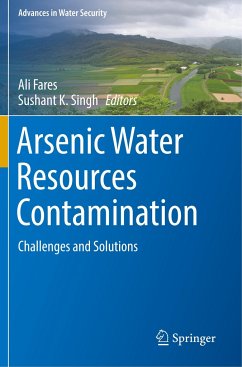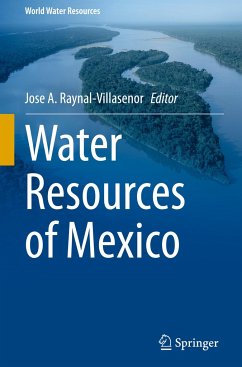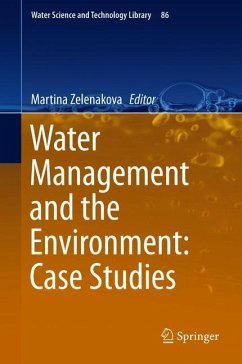
Safe Water and Sanitation for a Healthier World
A Global View of Progress Towards SDG 6
Herausgegeben: Rajapakse, Jay
Versandkostenfrei!
Versandfertig in 6-10 Tagen
98,99 €
inkl. MwSt.

PAYBACK Punkte
49 °P sammeln!
This volume presents a review of global progress made towards achieving Sustainable Development Goal 6 (SDG 6): Clean Water and Sanitation, part of the United Nations 2030 Agenda for Sustainable Development. It builds on the latest data and statistics provided by the UN and other international organizations through chapters written by a wide variety of authors, including representatives of government ministries and departments, members of international organizations specializing in this area, academics and senior professionals.The book details how SDG 6 is being approached in a number of geogr...
This volume presents a review of global progress made towards achieving Sustainable Development Goal 6 (SDG 6): Clean Water and Sanitation, part of the United Nations 2030 Agenda for Sustainable Development. It builds on the latest data and statistics provided by the UN and other international organizations through chapters written by a wide variety of authors, including representatives of government ministries and departments, members of international organizations specializing in this area, academics and senior professionals.
The book details how SDG 6 is being approached in a number of geographic regions, with each chapter describing developments in a particular region or country. Supporting case studies presented in the book illustrate progress, achievements and challenges that remain in the effort to reach SDG 6 by 2030. The book is intended for academics/researchers, scientists, policymakers, practitioners, and all stakeholders working at the global, regional, national and local levels who support or are engaged with the implementation of SDG 6.
The book details how SDG 6 is being approached in a number of geographic regions, with each chapter describing developments in a particular region or country. Supporting case studies presented in the book illustrate progress, achievements and challenges that remain in the effort to reach SDG 6 by 2030. The book is intended for academics/researchers, scientists, policymakers, practitioners, and all stakeholders working at the global, regional, national and local levels who support or are engaged with the implementation of SDG 6.





